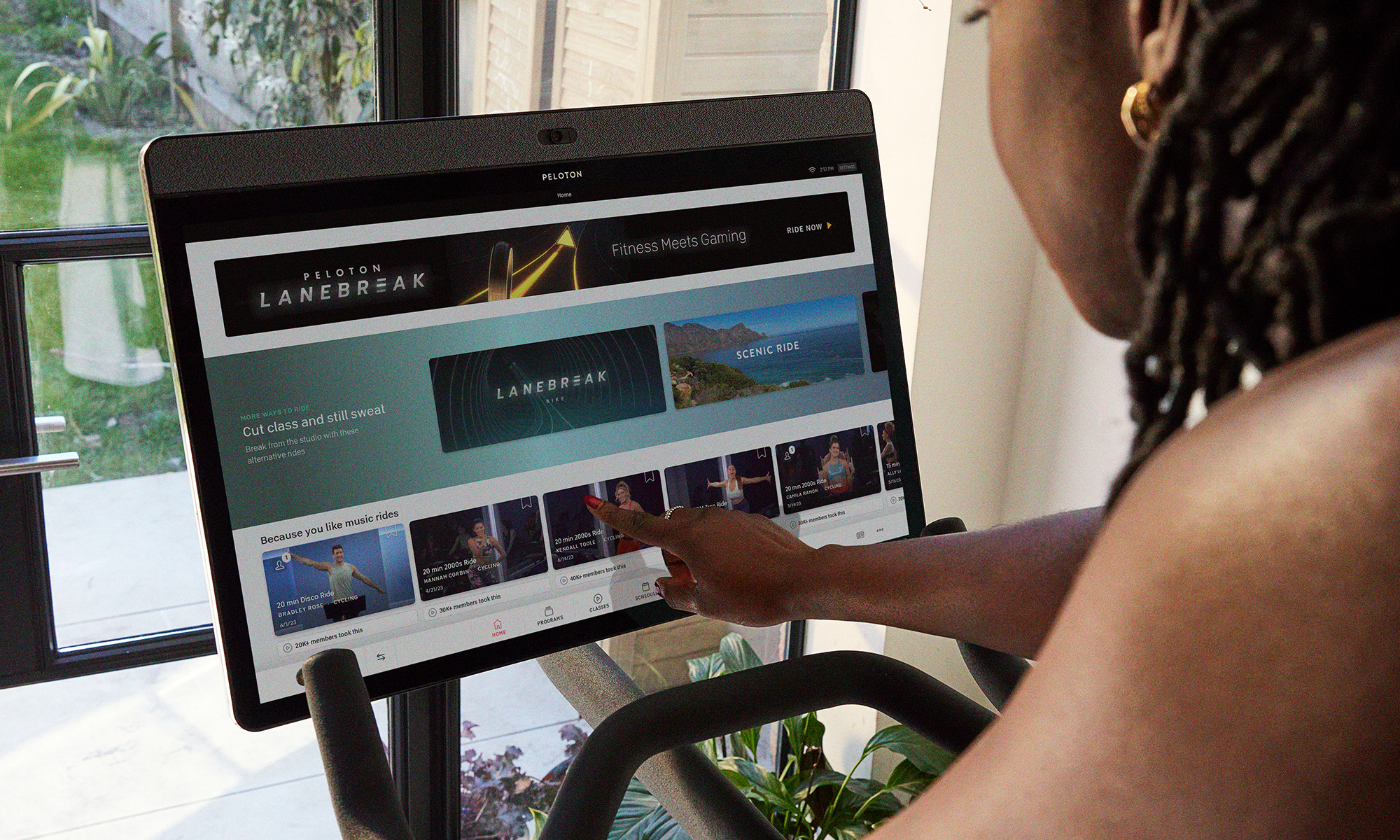The ongoing coronavirus pandemic has forced investors to reassess their investment philosophies. There has never been a better time to add high-quality names to your portfolio that have done well during this crisis. Trends that we've already seen in place, such as working out at home, have now accelerated due to shelter-at-home orders.
A big beneficiary is Peloton Interactive (PTON +3.15%), whose 2.6 million members helped generate sales of $525 million in the quarter ended March 31, 2020, representing 66% growth year over year. While the company has impressive gross margins of nearly 47%, it has yet to turn a profit. In fact, net losses in the most recent quarter widened to $56 million. Let's dive into how investors should interpret this.
Is the stock overvalued?
Peloton's lack of earnings hasn't prevented the stock from rising an incredible 149% since its IPO last September. Since mid-March, when fears and uncertainty regarding COVID-19 were at their highest, the stock has more than tripled. So is Peloton stock overvalued at current levels, and should investors consider shorting the stock?

Image source: Peloton.
Without any profits to aid in valuation, we're forced to use other metrics. The company's price-to-sales (P/S) ratio is 12.25. This makes Peloton more expensive than other high-profile tech names, such as Tesla and Netflix, which both have P/S ratios slightly above 10.5.
Peloton is being valued this way solely due to its fast-growing and disruptive properties, not uncommon in the world of investing. In the company's S-1, Peloton describes itself as a "technology, media, software, product, experience, fitness, design, retail, apparel, and logistics company." While I view this as nothing more than a marketing ploy, it seems that the market believes the hype. Jaw-dropping growth, particularly during the ongoing health and economic crisis, has warranted a premium price.
Don't bet against a great product
Stocks are forward-looking instruments that discount future cash flows to come up with a current asset value. With this framework in mind, it would seem obvious that Peloton is priced as if it can do no wrong and might in fact be overvalued. But I urge investors to always keep this rule in mind -- never bet against a company with a great product.
For starters, shorting is extremely difficult to pull off successfully. Timing is crucial, and losses have no cap. Furthermore, Peloton actually does sell a fantastic product. Its bike has a user rating of 4.8 out of five stars. That's derived from a total of nearly 7,000 reviews. Great products can stay relevant longer than short sellers can stay solvent. Tesla is a perfect example of this. The company produces some of the most beautiful, high-performance, and technologically advanced vehicles the world has ever seen, and even though the stock continues climbing higher, short sellers keep losing.
Discussions of a cheaper treadmill are also on the table, which could open up Peloton's addressable market even more. This would undoubtedly please investors, and could provide support for the stock price in the near term.
The final word
Peloton has disrupted the fitness industry by delivering a user-friendly solution for workout enthusiasts who value convenience above all, but still want the feeling of competition. While the stock has been on an absolute tear over the last nine months, I believe the company is building a competitive advantage that should protect it from rivals. Investors looking to short the stock should think twice.








